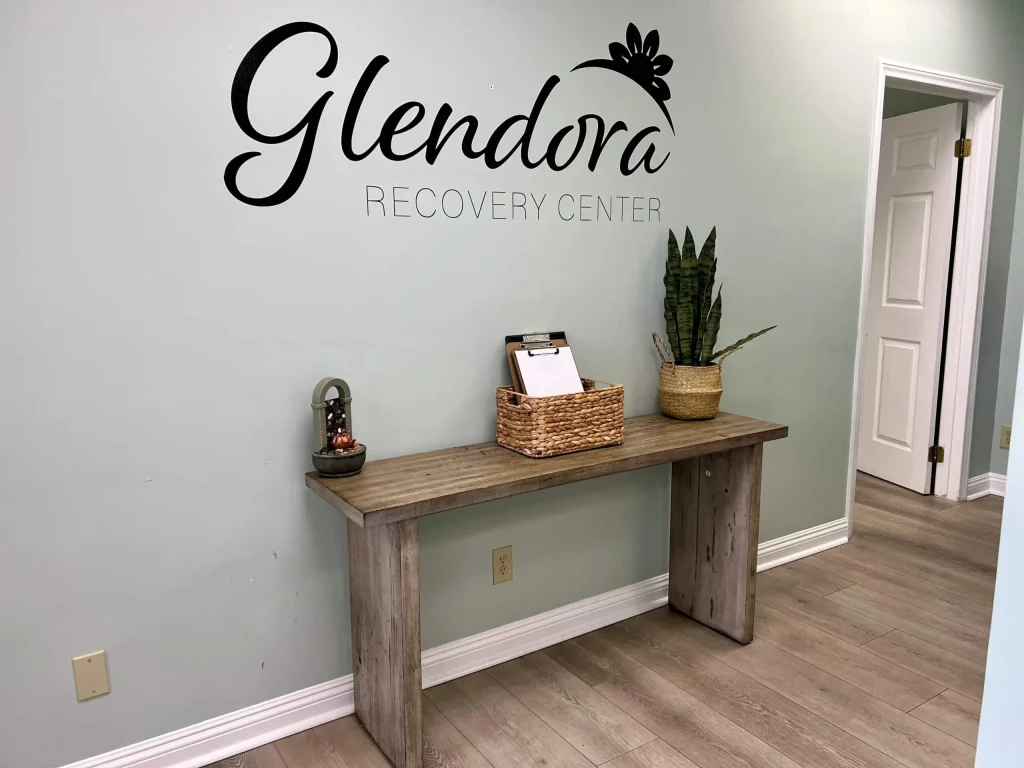Our Locations
1340 E. Route 66 Street Suite 103 & 106, Glendora CA 91740
(626) 594-0881
1340 E. Route 66 Street Suite 103 & 106, Glendora CA 91740
(626) 594-0881

At Glendora Recovery Center, we understand the profound impact obsessive-compulsive disorder (OCD) can have on your daily life, relationships, and overall well-being. Our specialized mental health treatment center in California provides evidence-based care designed to help you regain control and live a more meaningful life. We offer comprehensive access to treatment for individuals seeking a healthier life through proven therapeutic approaches.
Obsessive-compulsive disorder (OCD) is a chronic mental health condition characterized by persistent, intrusive thoughts (obsessions) and repetitive behaviors or mental acts (compulsions) that individuals feel driven to perform. According to the Anxiety and Depression Association of America, OCD affects 2.5 million adults or 1.2% of the U.S. population, making it the fourth most common psychiatric disorder, following major depressive disorder, alcohol dependence, and specific phobia.
The prevalence of OCD is significant, with approximately 1 in 40 U.S. adults having OCD now or developing it at some point in their lives. Research from the National Institute of Mental Health indicates that the prevalence of OCD in a 12-month period is higher in females (1.8%) than in males (0.5%), and Medical News Today reports that 90% of people with OCD also have another co-occurring mental health condition — most often, this is an anxiety disorder.

OCD manifests in various forms, and understanding these different presentations is crucial for effective treatment. A meta-analytic review of symptom structures found a four-factor grouping structure to be most reliable: symmetry factor, forbidden thoughts factor, cleaning factor, and hoarding factor. Our clinic also treats related Obsessive-Compulsive Spectrum Disorders that may co-occur with OCD.
Contamination OCD is one of the most prevalent subtypes of OCD, involving intense fears about germs, dirt, or other contaminants. Individuals with this subtype often engage in excessive hand washing, cleaning, or avoidance behaviors.
Harm OCD a subtype of OCD characterized by intrusive thoughts or urges relating to harming oneself or others. These distressing thoughts do not reflect the person’s true intentions but create significant anxiety.
Scrupulosity OCD involves excessive concern with religious or moral issues, causing significant distress around spiritual practices and ethical decisions. This form of OCD requires specialized understanding of both psychological and spiritual concerns.
Relationship OCD is a subtype of OCD that involves intrusive thoughts and compulsive behaviors related to their romantic partner.
Many individuals with OCD experience checking compulsions, repeatedly verifying that doors are locked, appliances are turned off, or that no harm has been caused to others.
Our comprehensive treatment modalities address the unique needs of each individual, providing multiple pathways to recovery. We understand that effective behavioral health treatment requires a personalized demand approach that considers your home situation, stressors, and individual circumstances.
The effectiveness of OCD treatment, particularly ERP, is well-documented in research. Studies published in ScienceDirect found that a large effect size was found for CBT with ERP in reducing the symptoms of OCD, and compared with the control group, ERP reduced depression (g = 0.15) and anxiety symptoms (g = 0.23) in patients with OCD.
Generally, treatment consisting of 90- to 120-minute sessions once or twice per week, for a total of 12–20 sessions, is effective. Our experienced clinicians work with each individual to determine the optimal treatment duration and intensity based on their specific needs and response to therapy.
OCD symptoms typically involve both obsessions and compulsions that significantly interfere with daily life. According to the National Institute of Mental Health, half of adults with OCD (50.6%) reported serious impairment as of 2001-2003. One-third of adults with OCD (34.8%) reported moderate impairment.
Common signs include:
The average age of onset of OCD is 19 years, though it can develop at any age. Our clinic provides comprehensive screening and diagnostic evaluation for people ages 13 and up, including specialized assessment for adolescents.

Research indicates that psychological trauma can be a contributing factor in the development and maintenance of OCD symptoms. Our experienced psychologists and psychiatrists are trained to identify and address trauma-related factors that may be impacting your OCD. We integrate trauma-informed care principles into our treatment approach, recognizing that addressing underlying trauma can be crucial for long-term recovery and achieving a more meaningful life.
Located conveniently for Los Angeles area residents, Glendora Recovery Center offers a unique opportunity for comprehensive recovery. Our California-based mental health treatment center provides:
Treatment begins with a comprehensive diagnostic evaluation to understand your specific symptoms, triggers, and treatment goals. Our psychological association-trained professionals conduct thorough screening to identify any co-occurring mood disorders or related conditions. Your personalized treatment plan may include:
Our treatment sessions are designed to be flexible and responsive to your individual needs, whether you’re seeking intensive outpatient treatment or less frequent outpatient services. We also offer teletherapy options to improve access to treatment for those who may have transportation or scheduling challenges.

Taking the first step toward treatment can feel overwhelming, but our compassionate team is here to help.
Contact Glendora Recovery Center today to:
Don’t let OCD control your life any longer. The evidence-based treatments available at Glendora Recovery Center can help you reclaim your freedom and live the life you deserve. Contact us today to take the first step toward recovery.
DHCS License#: 191012BP
EXP: 12/31/2026
JCAHO #: 666556
Glendora Recovery Center | © Copyright 2025 | Privacy Policy | Sitemap